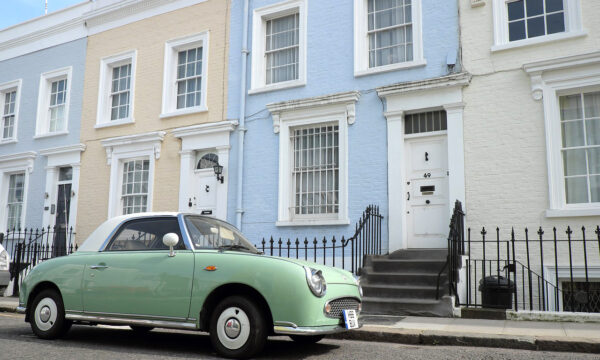Can medical cannabis help treat sickle cell disease?

The condition sickle cell disease is when a group of disorders affect the red blood cells. Treatment focuses on controlling the severe pain in which the disease brings to the body. If traditional options aren’t efficient at managing the symptoms, medical cannabis for sickle cell disease is sometimes considered as an alternative treatment option. But how effective is this and can it really treat those suffering with this incurable hereditary disease?
What is sickle cell disease?
When both parents have the abnormal hemoglobin gene, people can inherit sickle cell disease because by getting one of these abnormal genes from each parent. At least one of the two inherited abnormal genes causes the production of hemoglobin S; sickle cell anemia is caused when someone has two of the hemoglobin S genes. Despite patients with sickle cell disease having it from birth, any symptoms don’t usually occur until just before or just after six months.
Symptoms of sickle cell disease
Depending on the patient, the severity and various symptoms of sickle cell disease vary dramatically. The symptoms may change over time and often relate to complications caused by the disease. As a result, the symptoms evolve over time as does the pain level associated with each. Symptoms include:
- Pain crisis (temperature change, stress, high altitude or dehydration)
- Chronic pain (chest, abdomen, lower back, arms and legs)
- Ulcers
- Severe pain in bones and joints throughout the body (Sharp, stabbing or throbbing)
- Vision difficulties caused by retina damage
- Slowed growth and delays in puberty
- Frequent infections due to damage to the spleen
- Swelling in the hands and feet
- Anemia
- Jaundice
- Icterus
- Depression
- Prone to deadly infections
- Heart attacks
- Strokes.
- Blood clots
- Eye problems
- Liver problems
- Kidney damage
- Pulmonary hypertension
- Blindness
- Gallstones
Traditional treatment for sickle cell disease
The hematopoietic stem cell transplantation (HSCT) bone marrow transplant is currently the only cure for sickle cell anemia. It is both difficult to find a donor and a complex procedure to perform. Unfortunately the age of 16 is generally the cutoff for this treatment option, leaving many hopefuls too old to have the procedure. Doctors normally only recommend the transplant for children with major symptoms as older patients have increased risks when going through the operation.
Marijuana and sickle cell disease treatment
Marijuana often helps reduce nausea, and can be a good balance if someone is taking opiates as a prescribed medication, which cause the nausea itself. Also, it can be used exclusively without opiates and can help keep pain under control by reducing inflammation and soothing the aches. Any medical maijuana treatment plan is a routine set by a medical professional or healthcare provider not by the users’ discretion themselves. It’s possible tolearn how to get a medical marijuana Florida card or in any other state because information is widely available to prospective patients via a doctor. This is particularly relevant as the laws pertaining to the conditions that qualify for medical substance differ in each state. This of course is inconsistent and confusing but as an example, sickle cell is only listed currently as a qualifying condtion in Ohio, Georgia, Pennsylvania and Connecticut.
Relief
Using marijuana for sickle cell disease can have a significant effect on the pain caused by the disorder. The natural receptors in the body’s endocannabinoid system interact with the cannabinoid chemicals in marijuana to ease pain, reduce inflammation and help with many other processes in the body which vastly improves both the patient’s physical and mental health. An analgesic like marijuana can revolutionise the quality of a patient’s life and their living habits and experiences with its positive effects on both acute and chronic pain.
Potential side effects of cannabis and sickle cell disease
It’s extremely important to understand the potential side effects for sickle cell disease treatment despite it being considered as a viable alternative method. The effects can be extremely mild, especially when compared to opiates. Unlike in prescription drugs where the long-term effects can be devastating, using majijuana is said to be far less damaging as when it leaves a system the effects do too. It can have some of the following potential side effects in some individual cases which will contrast in severity and length;
- The sense of euphoria or a “high”
- Increased hunger
- Sleepiness, particular with indica-dominant strains
- Dry mouth
- Red eyes
- Blurred vision
Certain aspects of these effects can be perceived as frustrating or annoying of course however there are advantages to be gained from them as well. Occurrences where people suffer insomnia can be countered with the drowsy effect whilst those with a low appetite may welcome the increased hunger or “the munchies” that the treatment can often be accompanied by.
Conclusion: Why medical marijuana for sickle cell disease can be effective
The subject of medical marijuana is still a controversial and divisive topic however acceptance is certainly spreading, even rising in numbers. Perception is often the cause of widespread opinion so until facts and research are more widely broadcast then the debate will inevitably continue to roll on about the ethical side to the argument. However, there is no denying the improvements in the quality of life this substance can offer sickle cell disease patients who sometimes – in fact, most of the time – are in excruciating discomfort and have little other option other than to suffer.
There is an ethical discussion to be had here about what we are putting patients through by not allowing them this proven treatment and to live their lives in better continued health. It is a useful and versatile medicine for many purposes and needs to be portrayed and promoted as such rather than with scepticism and doubt as it so often is.
There will always be critics but that is a way of life but ignorance and assumed prejudged attitudes towards something that mostly does not affect those in power making these decisions whatsoever cannot be tolerated when there are people suffering as a consequence. Medical marijuana is a safe and effective alternative to potentially dangerous medications like opiates that needs to be embraced and distributed legally to those who need it.
The editorial unit





















Facebook
Twitter
Instagram
YouTube
RSS